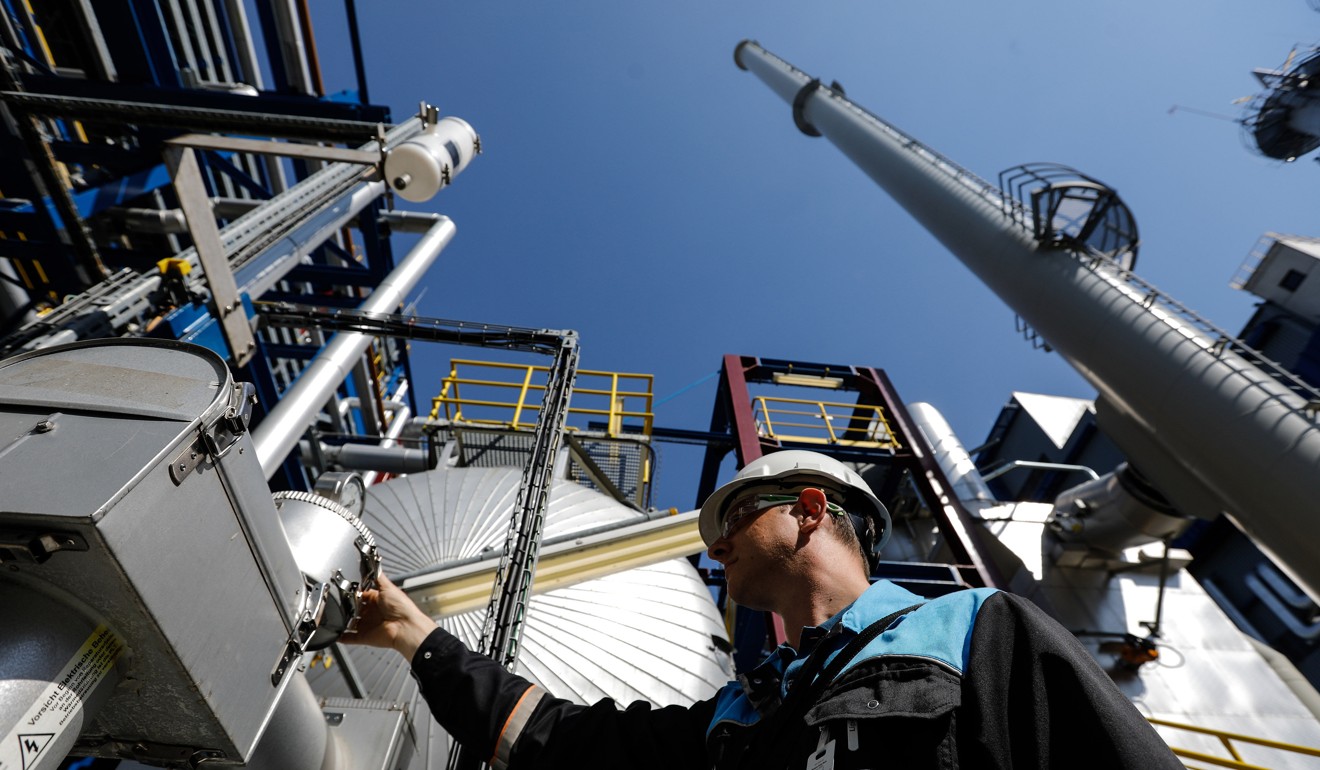
German pharma giant Bayer’s polymer spin-off goes big on e-commerce in China
German polymer maker has opened a store on Alibaba’s business-to-business trading platform, 1688.com, to target new buyers in China – its biggest market – where sales rose 8 per cent last year to €3.06 billion
Covestro, which was spun off from German drug maker Bayer in 2015, has launched two digital distribution channels to capture new customers and meet the needs of changing business procurement behaviours in China.
Last month the polymer maker opened a flagship store on e-commerce giant Alibaba Group Holding’s business-to-business trading platform 1688.com, which was preceded by its own trading platform in the middle of last year to serve bulk buyers where customers can easily switch between suppliers, said chief commercial officer Markus Steilemann, who takes over as chief executive from June.
They form part of Covestro’s “digitalisation” strategy that will also see the Leverkusen, Germany-based firm plough “tens of millions of euros” up to 2020 to overhaul its production control systems globally, giving it the data it needs to predict and conduct operational maintenance to avoid production downtime.
“We want to piggyback on Alibaba’s presence to position our products and services … [and] attract new small and medium-sized customers who may not have heard about us, but happen to be searching for products on Alibaba,” Steilemann told the South China Morning Post in an interview.
The firm, which was known as Bayer MaterialScience before it was listed on the Frankfurt stock market in October 2015, is aiming for its two new e-commerce platforms to contribute up to €1 billion (US$1.17 billion) in accumulated sales by the end of next year.
Bayer has since been selling down its stake, and will no longer hold any Covestro shares once an exchangeable bond matures in 2020.

The drive to deepen its online distribution capabilities – above and beyond its previous online order system that lack interactive features – was also driven by changing procurement behaviours of a younger generation of business owners and procurement managers, according to Steilemann.
“Many of those mom-and-pop shops are going into the hands of second generation owners and purchasing managers, many of whom are internationally educated digital natives who have entirely changed the way they purchase,” he said.
“They are the type who would say, I don’t want to meet you or have a fancy dinner with you, just deliver the materials and give me services. Whereas the founders are used to meeting face to face, building trust, negotiating each and every deal and ordering via paper and telephone.”
Other international giants selling mainly to businesses that have also opened online stores at 1688.com include US-based adhesive and consumable products giant 3M and Swedish-Swiss electrical-equipment maker ABB Group. Alibaba owns the Post.
Covestro makes and sells materials such as foams used to insulate buildings and homes, plastic car seats padding and interior panels that are both lightweight and sturdy, coatings that make furniture water and scratch-resistant, as well as adhesives and sealants used in manufacturing.
Lightweight materials are increasingly in demand in the automotive industry amid toughening fuel efficiency requirements in petrol and diesel cars, and in electric or hybrid energy vehicles that need to shed weight elsewhere to compensate for heavy batteries.

Increasingly, the company has seen stringent energy efficiency building codes drive demand for insulation foams, as commercial buildings and private homes are responsible for some 40 per cent of global energy consumption, Steilemann noted.
Its materials are also used to speed up the production time and cut down the production cost of wind turbine blades, while making them more durable. China is the world’s largest market for wind turbines.
Of Covestro’s €14 billion of global revenues last year, some 22 per cent came from its largest market China, where sales grew 8 per cent to €3.06 billion.
Its global net profit jumped 152 per cent last year to €2 billion.
As demand for sustainable products and solutions rises the world over, Steilemann said Covestro aims to raise the proportion of its research and development spending – at €270 billion this year – on projects that will have environmental and social benefits from 50 per cent currently to 80 per cent by 2025.

